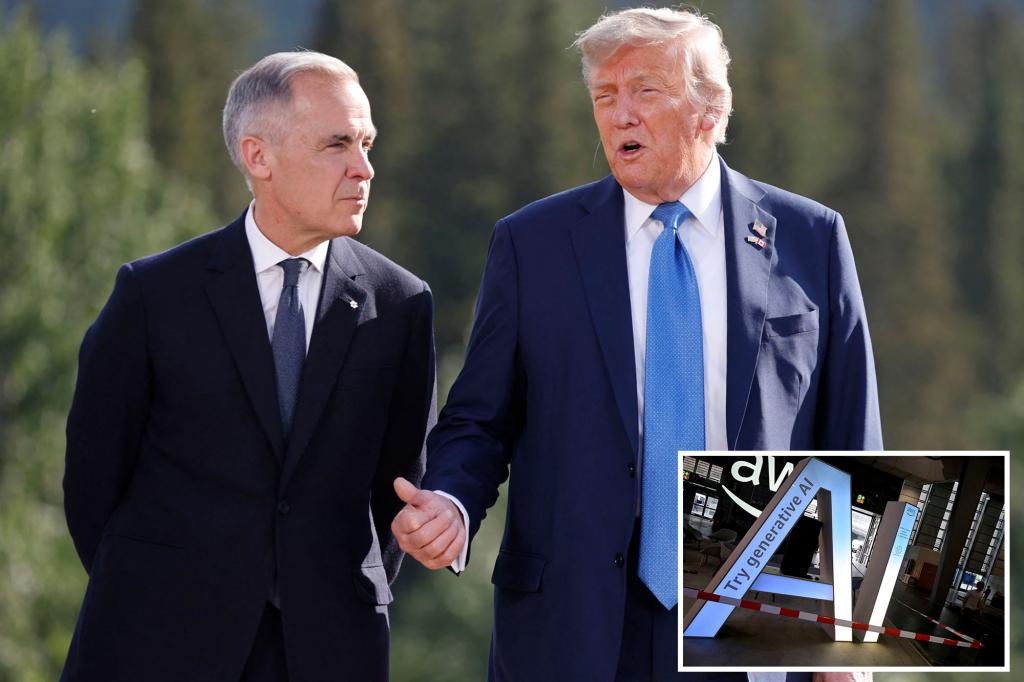
Canada has abruptly reversed its decision to implement a new digital services tax targeting major American technology companies. The move comes just days after former President Donald Trump criticized the tax as a “foolish” and “direct and blatant attack” on the United States.
The decision by Canadian Prime Minister Mark Carney to suspend the tax was made just hours before it was set to take effect on Monday. This development comes as Canada seeks to revive stalled trade negotiations with the United States ahead of a critical July 21 deadline.
Background and Immediate Impact
The proposed tax would have imposed a 3% levy on revenue generated by companies such as Amazon, Google, Meta, Uber, and Airbnb from Canadian users. The tax was to be applied retroactively, potentially leaving these companies with a $2 billion bill due in the United States by the end of the month.
Trump, responding to the announcement, had immediately halted trade talks with Canada and threatened to impose new tariffs on Canadian goods within the following week. In a statement on Truth Social, Trump expressed his disapproval, stating,
“We have just been informed that Canada … has just announced that they are putting a Digital Services Tax on our American Technology Companies, which is a direct and blatant attack on our Country.”
Diplomatic Tensions and Economic Implications
The decision to implement the tax was seen as an emulation of similar measures taken by the European Union, which are also under negotiation with the United States. Trump’s administration viewed the tax as an unfair economic burden on American companies and a potential disruptor of US-Canada relations.
In response to the tax, Trump stated,
“Economically we have such power over Canada. We’d rather not use it. It’s not going to work out well for Canada. They were foolish to do it.”
This statement highlighted the potential for economic repercussions if the tax were implemented.
Efforts to Resume Trade Talks
Following the suspension of the tax, Prime Minister Carney’s office revealed that he had spoken with Trump on Sunday night. The conversation led to an agreement to halt the tax to facilitate the resumption of trade discussions.
Canada’s Finance Minister François-Philippe Champagne is now tasked with introducing legislation to officially rescind the tax. According to a statement from Canada’s finance ministry,
“The DST was announced in 2020 to address the fact that many large technology companies operating in Canada may not otherwise pay tax on revenues generated from Canadians.”
The statement further emphasized Canada’s preference for a multilateral agreement on digital services taxation.
Historical Context and Future Prospects
The breakdown in trade talks followed a meeting between Trump and Carney at the G7 summit in mid-June, where they had initially agreed to finalize a new economic deal within 30 days. The abrupt halt to these discussions underscores the fragility of international trade agreements and the impact of unilateral tax policies.
As Canada moves to rescind the digital services tax, the focus shifts to how both nations will navigate their economic relationship moving forward. The potential for new tariffs looms, but the willingness to resume negotiations suggests a mutual interest in maintaining strong trade ties.
With the July 21 deadline approaching, the coming weeks will be critical in determining the future of US-Canada trade relations. The outcome will likely have significant implications for both economies and the global tech industry.







